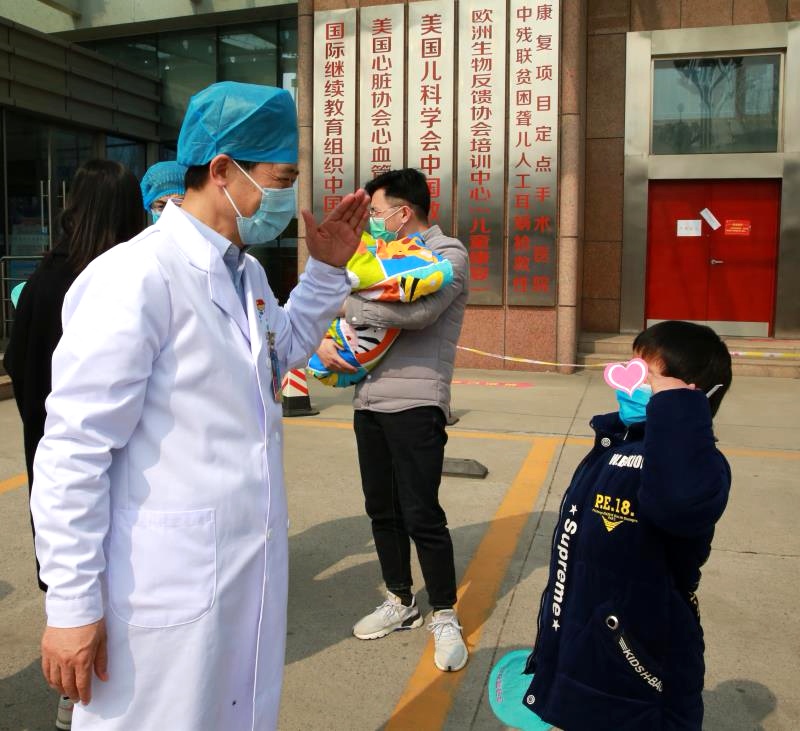Experts share advice on child cases

A seven-year-old patient thanks his doctor after he recovered from COVID-19 and was discharged from the hospital on March 6, 2020, in Henan province. [Photo provided to chinadaily.com.cn]
Since the paper about the first China study of child COVID-19 cases was published in an international journal, pediatricians overseas have approached the Shanghai-based researchers to seek medical advice.
Zeng Mei, leader of the research team from the Children's Hospital of Fudan University, where confirmed child COVID-19 cases are received in Shanghai, said in an exclusive interview with China Daily on Tuesday that peers in countries including Italy, the United States and Spain have sought their advice online after reading the paper published in the US-based journal Clinical Infectious Diseases on Feb 28.
Their main queries focused on treatment for such child cases under age 16, infection control, infectivity, transmission route, protection of healthcare workers and quarantine standards, said Zeng, who is also director of infectious diseases at the hospital.
"Our study was intended to provide a scientific basis for early identification, reasonable diagnosis and treatment as well as the prevention and control of the disease among children," said Zeng, adding that her team was delighted that they may contribute to improving clinical practice and safety measures for their counterparts overseas.
The study-based on data from 10 clinical child cases received in Shanghai as well as the provinces of Shandong, Anhui and Hainan between Jan 19 and Feb 3 - found that all those children showed mild symptoms of respiratory diseases or common pneumonia, and none suffered from rapid breathing or hypoxia.
"Fevers in these child patients aged between 3 months and 10 years were brought down within 24 hours," she said.
National statistics so far also showed that only nearly 3 percent of the 731 confirmed child COVID-19 cases were severe or critically ill, much lower than the rate of 19.2 percent among patients of all age groups in the country.
Zeng said medical experts are still exploring why child cases are usually mild.
"One reason might be that the age group of adults, including people from 18 to those in their twilight years and elderly people, usually have more preexisting health conditions. Such individuals are more prone to becoming severe cases.
"Also, maybe some children have an immunity to the virus, and this needs to be further explored and verified," she said.
Their research also found most children became infected after at least one adult in the family became infected, and the incubation period among children was 6.5 days, longer than the 5.4 days reported for adults.
Zeng said there was no need to resort to anti-viral drugs and antibiotics in treating mild child cases, and treatments for the symptoms are recommended.
"We recommended treatment of complications if the disease affects these children's hearts, livers and kidneys, and doctors could consider anti-inflammatory medicines if there are secondary bacterial infections," she said.
Most child patients tested negative for the virus in their noses and throats from the sixth to 21st day - with a median of the 12th day - after they first tested positive, according to the research.
The virus was often detected in their excrement, which tested positive for the virus two to four weeks after infection.
Copyright © The National Committee of the Chinese People's Political Consultative Conference.
All rights reserved. Presented by China Daily.
京ICP备08100501号-1

